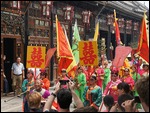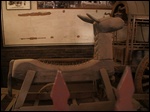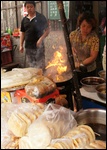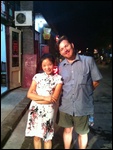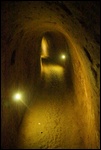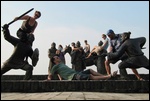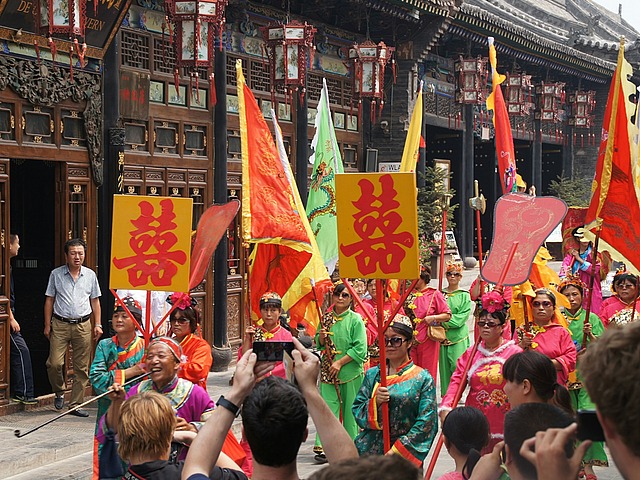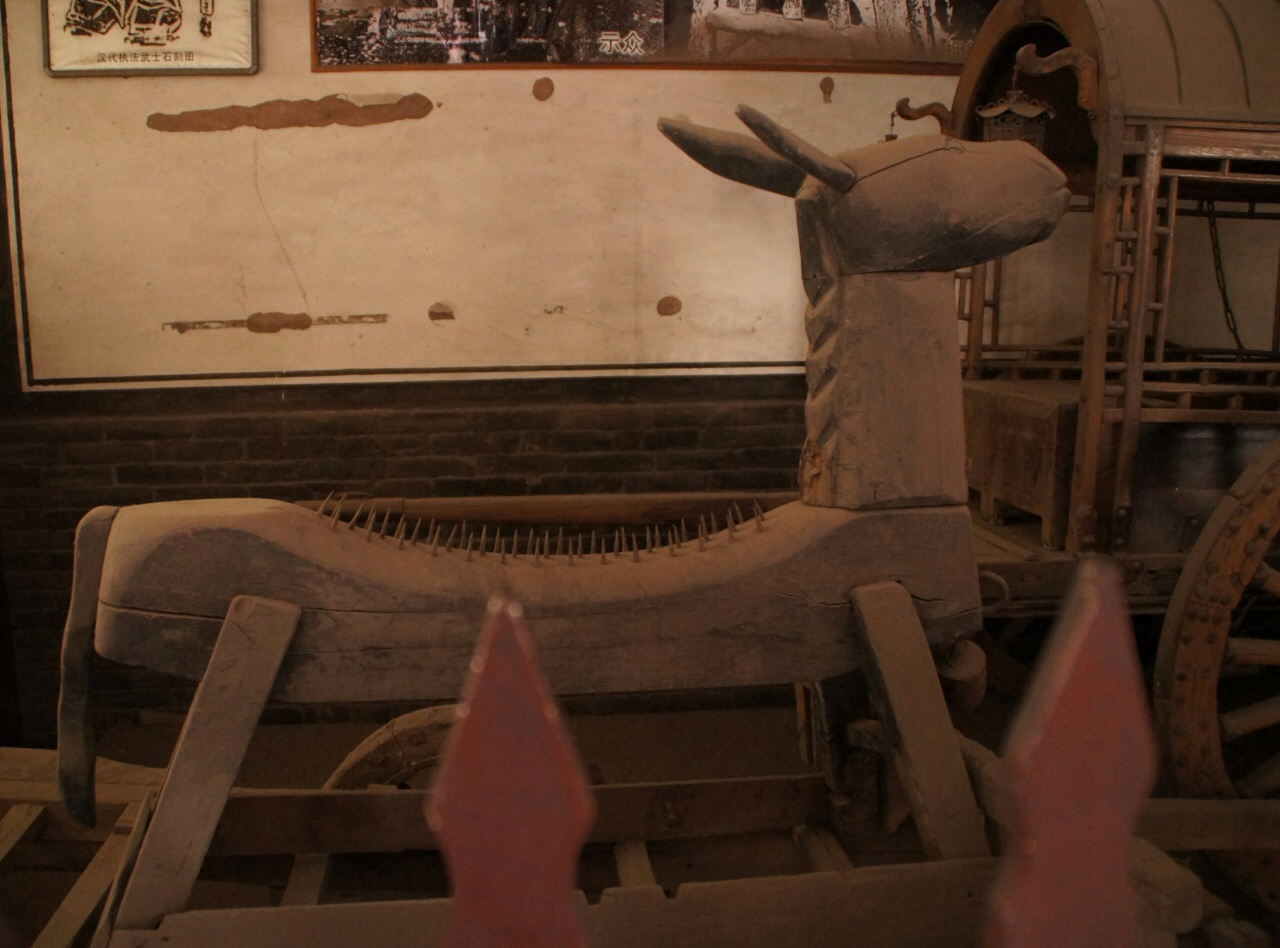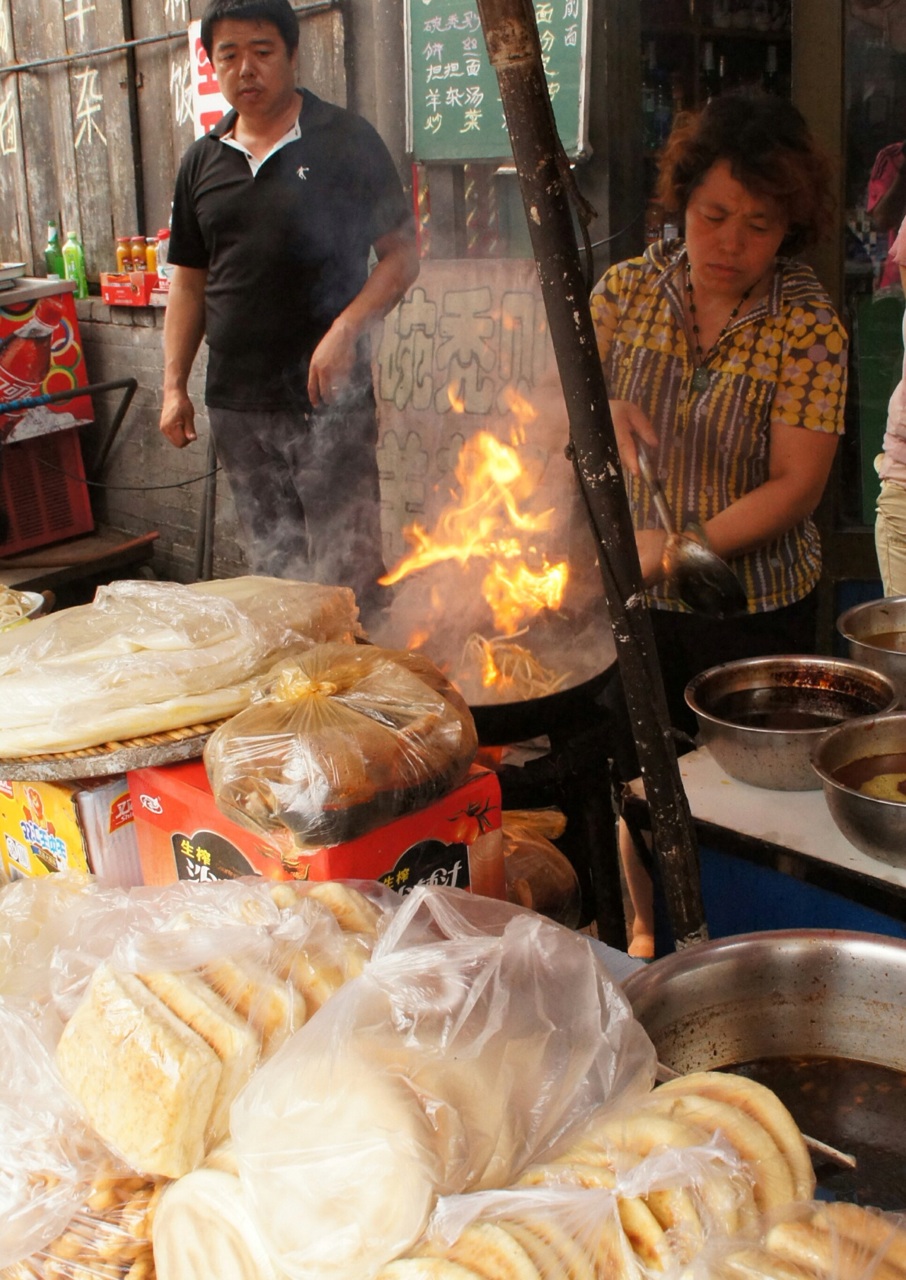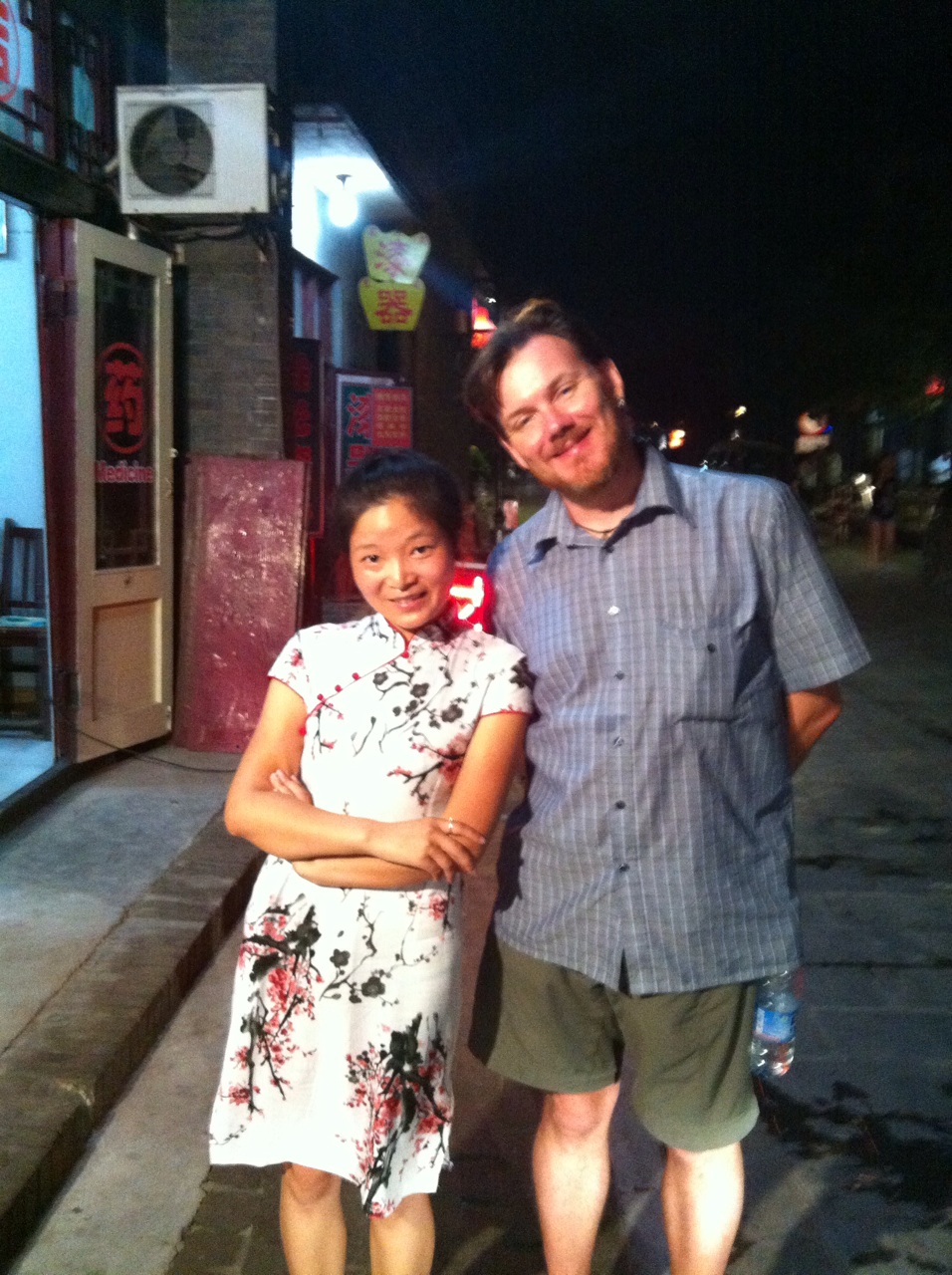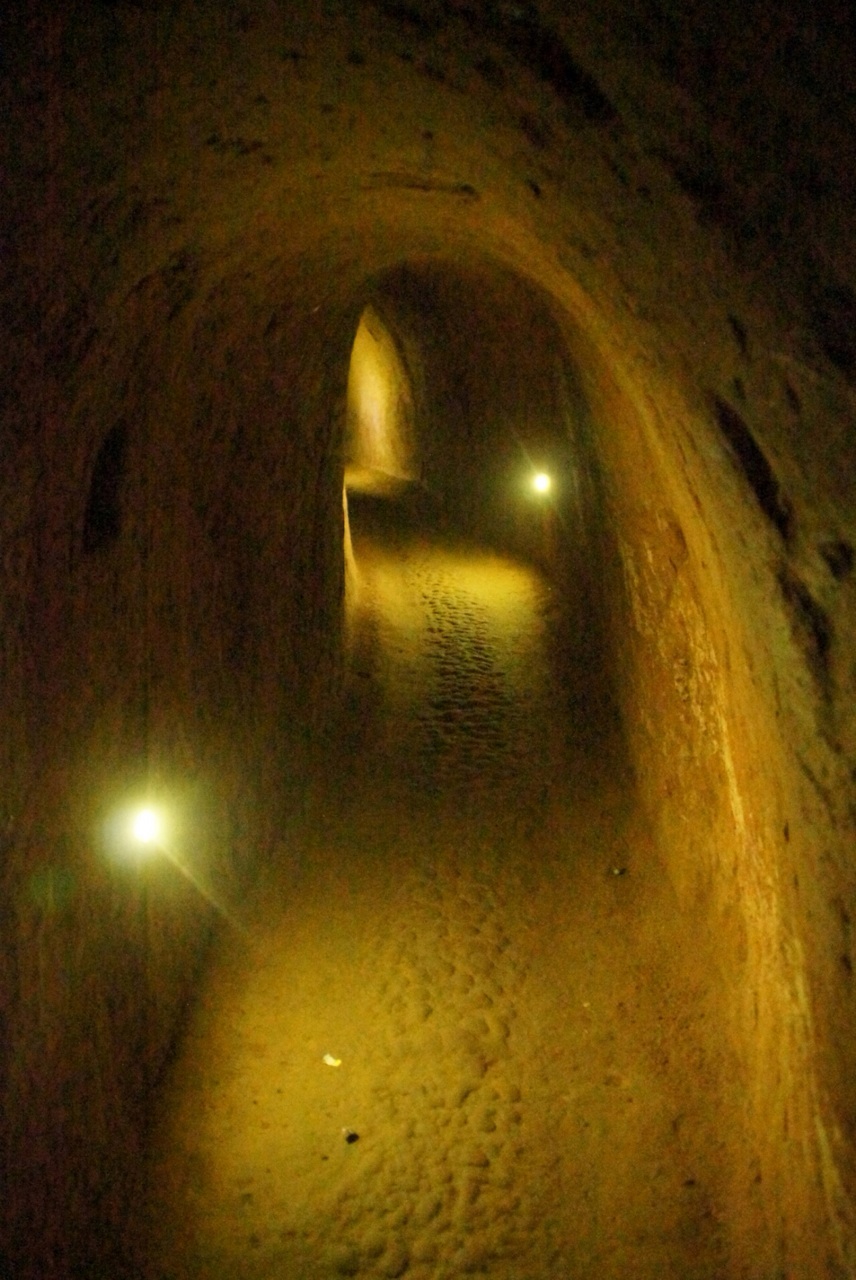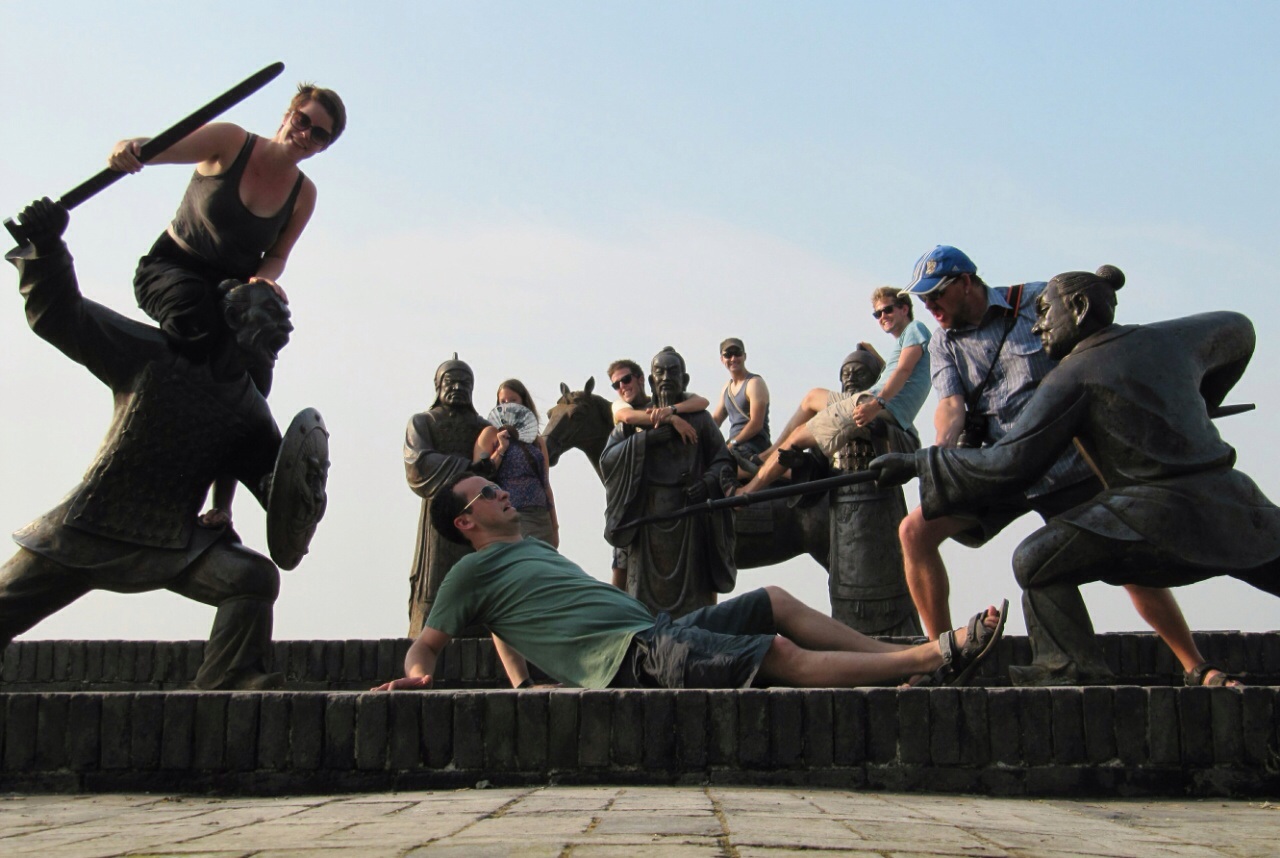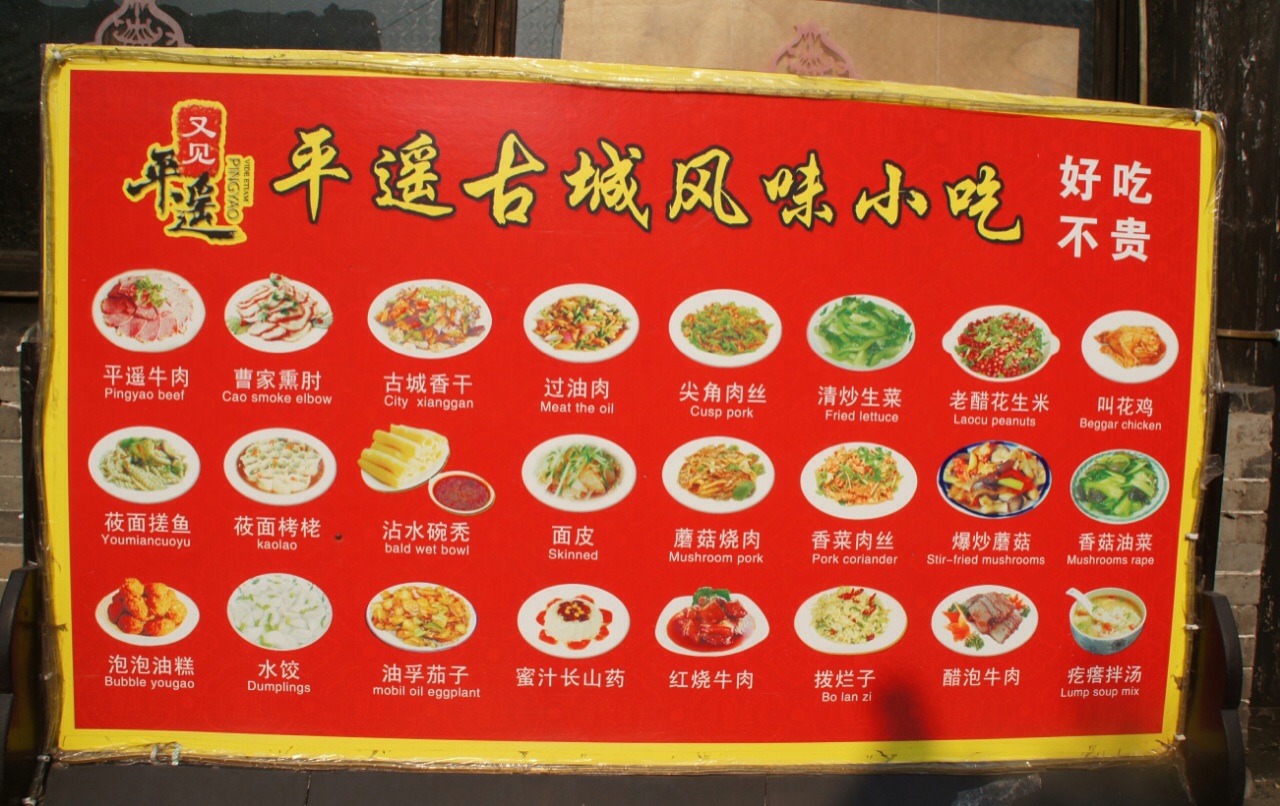Once one of the biggest town in China, Pingyao is now a small, but vibrant town with cosy narrow stone-paved alleyways within its Han dynasty walls. The architecture within gives a distinct Tintin feel, especially Blue Lotus. Participating in the traditional Chinese custom of getting their morning workout in the park, a few of us went up at six in the morning and kicked some local arse in badminton. Others gave the choreographed dancing a go, and as per tradition, or old charter, or something, we walked backwards.
The first ever bank in China was located in Pingyao, and even though it went out of business in 1932, the buildings still remain and have now been turned into a museum. The bank was part of our guided city walk, along with a Confucian temple, with very graphic statues depicting what's to be expected in hell, and the local government building. Housing all manners of administrative buildings, temples and an opera, it also contains the corrective facilities: Court rooms, torture chambers and prison. The horrific means by which they tortured back in the olden days (that is, up to the early 20:th century) were described. And with all punishments, be they prison, torture, isolation or public humiliation, the sentence could be lessened if the culprit had enough of coin. As such, the last of the three courtrooms was called the Corruption court.
Her grandfather was an opera singer and her father and sister are both musicians, and so it makes sense that Claire has a great singing voice, and was therefore more than excited about the evening's event: KTV. After dinner, and a few rounds of firewater by the truck, we headed to one of the local karaoke bars, where a private room awaited. Most had a go with the mike, and Claire proved to be as skillful a singer as her constant humming had implied.
Not too eagerly, but still managing, most of us joined in on a daytrip next morning. The Zhangbi Ancient castle was built some 1400 years ago, and it is more or less underground. A maze* of winding tunnels joins below the surface, in three levels, with occasional communication holes between the caves and the open air, with flood discharge facilities, stables for livestock, storage for grains, housing for soldiers and with lookout spots upon the valley walls, to spot approaching enemies.
Back in Pingyao, we walked atop the city wall, covering half its circumference before being cut off by reconstruction work. From the view of a civil engineer, it is notable that the wall is constructed from soil, paved by bricks and stone on the outer side, but mostly uncovered on the inner. The soil had an amazing fall angle, the slope being 4:1 or steeper still.
What the Chinese have in technical prowess, they lack in linguistic, at least when it comes to translating menues. Or maybe they do it on purpose, for surely there can't, by pure chance, be so many dishes with names such as 'Mushroom rape', Mobil oil eggplant', 'Clear cooks the bull's penis', or my own personal favourite, 'Speculation is shifting'. They say the best meat in heaven is dragon, and the best meat on Earth is donkey. With heaven and dragons being all ficticious, I decided to give Eee-ore a chance. The priciest item on the menu, I was surprised to be served what looked suspiciously like spam, and nothing like the picture. Nevertheless, when in Rome, I dug in on the equine edibles, and not to my surprise, it tasted a bit like ham. Or, you know, ass.
-----
*) Or possibly a labyrinth
-----
